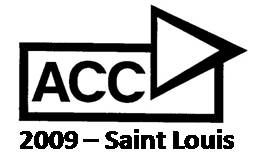Special Sessions on Emerging Topics
Title: Control Engineering and Related Systems Approaches for Improving Behavioral Health
Organizers: Daniel E. Rivera, Department of Chemical Engineering, Arizona State University
Fahmida Chowdhury, Cross-Directorate Activities Social, Behavioral, and Economic Sciences, National Science Foundation
Chair: Daniel E. Rivera, Department of Chemical Engineering, Arizona State University
Presentations:
Engineering Control Approaches for the Design and Analysis of Adaptive Behavioral Interventions
Daniel E. Rivera (ASU) and Linda M. Collins (Penn State)
Using Clinical Trial Data to Construct Behavioral and Medication Policies
Susan A. Murphy (Michigan) and Joelle Pineau (McGill)
Systems Science and Health at NIH and Beyond: Areas of Interest and Funding Opportunities, Patty Mabry (NIH)
Panel Discussion session (led by Fahmida Chowdhury, NSF)
Time: Thursday June 11, 2009; 18:30 – 20:00
Location: Mills Studio 3
Abstract: The goal of this special session is to describe emerging approaches and research opportunities for control engineering in a developing research topic of important societal significance. Specifically, we explore how control systems and related approaches from systems science can be applied to the prevention and treatment of chronic behavioral disorders; these include drug and alcohol abuse, depression, HIV/AIDS, cancer, diabetes, obesity, cardiovascular health, and aging. Effective management of chronic behavioral disorders has major impact on public health, requiring hierarchical, multi-stage decision-making of prevention and treatment components over time. Conceptually, such time-varying interventions represent forms of closed-loop control systems where intervention dosages (i.e., manipulated variables) are determined by decision rules (i.e., controllers) based on the values of a participant’s key characteristics (i.e., tailoring variables or controlled variables). Consequently, drawing from control engineering has the potential to significantly inform the analysis, design, and implementation of novel behavioral interventions, leading to improved adherence, better management of limited resources, a reduction of negative effects, and overall more effective interventions. Advances in this field involve significant modeling and computational challenges that need to be addressed. Novel decision rules will draw not only from control engineering, but also from the fields of artificial intelligence, statistics, and computer science. Practical solutions will involve individuals from diverse disciplines (e.g., psychologists, physicians, statisticians, computer scientists, applied mathematicians, and engineers). The session brings together a control engineer (Rivera), a quantitative psychologist (Collins), a statistician (Murphy) and a computer scientist (Pineau) with relevant program officers from NSF (Chowdhury) and NIH (Mabry) to address challenges and opportunities in this field.
